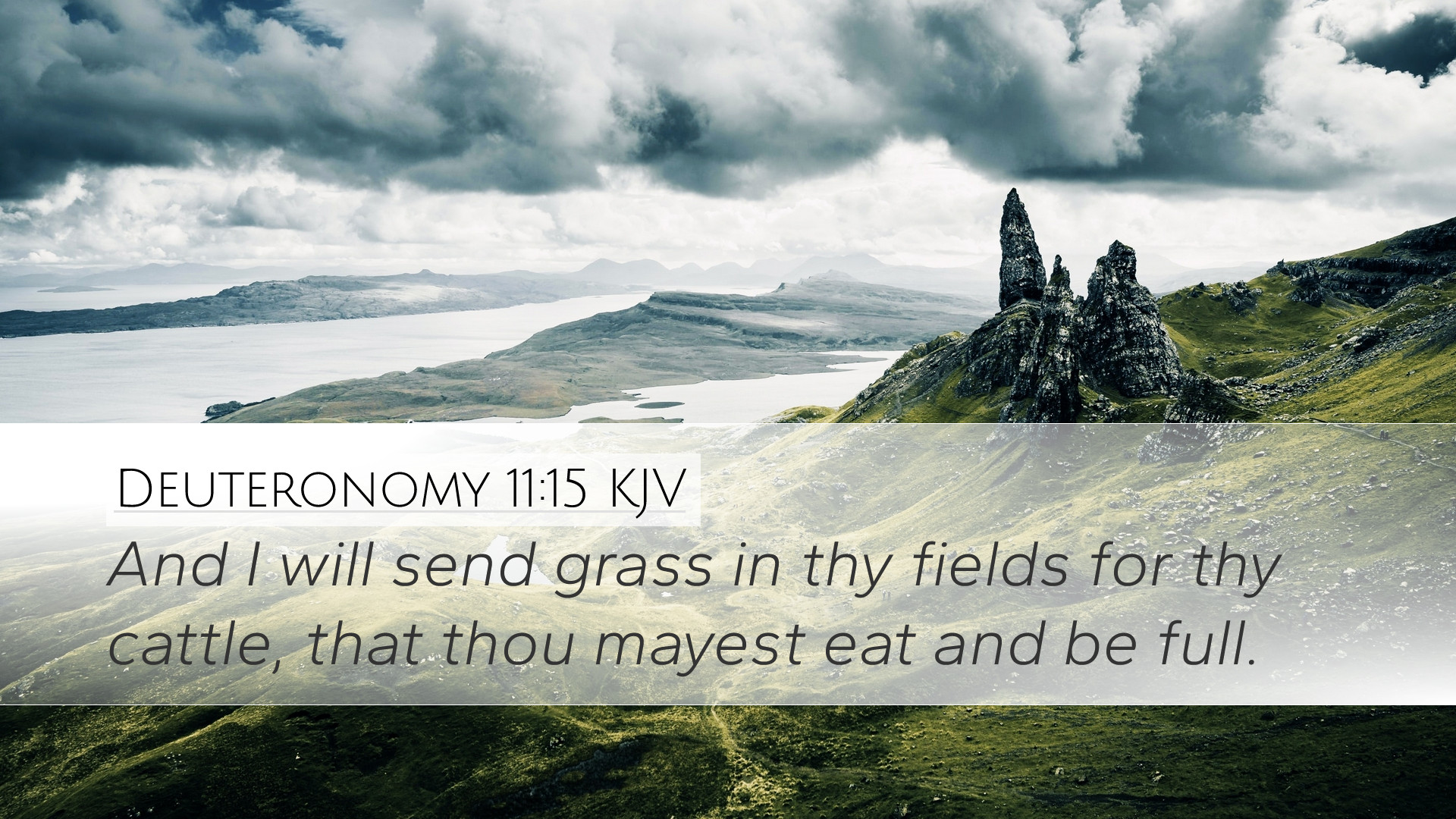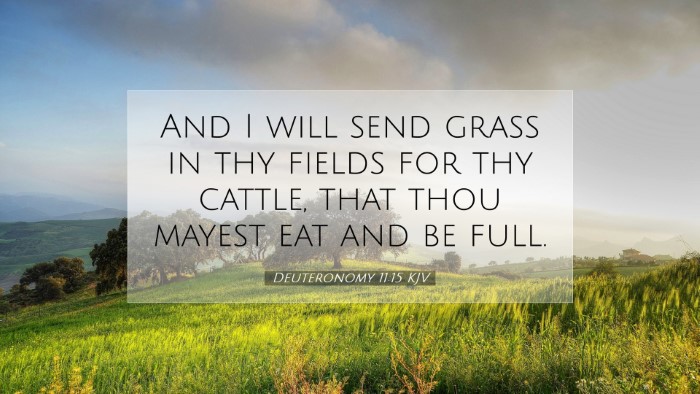Commentary on Deuteronomy 11:15
Verse: "And I will send grass in thy fields for thy cattle, that thou mayest eat and be full."
Introduction
This verse occurs within a larger section of Deuteronomy where Moses is exhorting the Israelites to obedience to God’s commands. It underscores the relationship between obedience to God and His blessings. Public domain commentaries from Matthew Henry, Albert Barnes, and Adam Clarke provide valuable insights into the text and its implications for both the ancient Israelites and contemporary believers.
Contextual Background
Deuteronomy is a restatement of the law given to the Israelites as they prepare to enter the Promised Land. This book emphasizes the importance of faithfulness to God’s commandments as a means of securing His continued favor and provision. Moses emphasizes the blessings that come from obedience and the consequences of turning away from God.
Analysis of Key Themes
-
The Divine Provision:
God’s promise to send grass indicates His ongoing provision for His creation. Matthew Henry notes that the provision of grass is not just a blessing to the animals but is also indicative of God’s care for humanity's sustenance. This reinforces the idea that God is intimately involved in the daily affairs of life.
-
Covenantal Relationship:
Albert Barnes emphasizes that this verse demonstrates the covenantal relationship God has with His people. By promising physical sustenance, God reaffirms His commitment to provide for and protect those who follow His ways.
-
Obedience and Abundance:
The clause “that thou mayest eat and be full” implies that God’s blessings are directly linked to the people's obedience. Adam Clarke highlights this conditional aspect—fulfilling God’s requirements opens the door to His abundant provision. This becomes a central theme throughout the scriptures, where obedience leads to blessing.
Theological Implications
This verse leads readers to reflect on the nature of God’s promises and His expectations of His people. It poses significant questions about reliance on divine providence and the responsibility of believers to live in accordance with God’s commands.
1. The Nature of God’s Promises:
God’s promises in scripture often come with clear expectations and conditions. Deuteronomy 11:15 echoes the blessings outlined in the previous chapters, where obedience is rewarded with physical and spiritual abundance. Matthew Henry illustrates that God’s blessings are linked to His people’s conduct.
2. The Role of Humanity:
Humans are called to respond to God’s grace with repentance and obedience. Adam Clarke discusses how neglecting God’s commandments not only leads to spiritual decay but also to physical suffering. This interplay of obedience and consequence is vital in understanding God’s governance in human affairs.
Practical Applications
-
Trust in God’s Provision:
This verse encourages believers to trust in God’s provision in their lives. Just as He provided for the Israelites, He promises to care for His followers today. This trust is foundational in cultivating a relationship with God.
-
The Importance of Obedience:
The verse serves as a reminder of the importance of living a life in accordance with God's word. The blessings mentioned serve as motivation for believers to strive for obedience, knowing that it aligns them with God’s will and opens the door to His providence.
-
Commitment to God’s Will:
In light of this verse, pastors and Christian leaders are called to teach the congregation about the significance of aligning their lives with God’s desires. This commitment leads to communal and individual blessings, reflecting God’s nature and promises.
Conclusion
Deuteronomy 11:15 encapsulates a profound truth about God’s nature and the responsibilities of His people. Through the insights of public domain commentaries, we gain a richer understanding of how this verse applies not only in the historical context but also in today’s spiritual practices. It encourages believers to live obediently, trust in divine provision, and acknowledge the intricate relationship between God’s promises and our actions.


